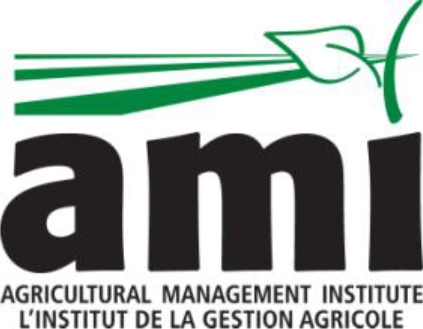Guide to Corn Nutrient Deficiency Symptoms
Added by OntAG Admin on July 31, 2014 at 5:00am — No Comments
Winners Announced in Inaugural National Farm Photo Contest
![]() July 30, 2014 - (Guelph) Winners have been announced in the Farm & Food Care Foundation’s inaugural Farm Photo Contest. The contest which ran from early May until the end of June gave photographers the chance to enter their farm photography in six categories – All About Animals, Canadian Farm Scenes, Crazy About Crops, Farm Faces, Farm Fun and Farm Innovation.
July 30, 2014 - (Guelph) Winners have been announced in the Farm & Food Care Foundation’s inaugural Farm Photo Contest. The contest which ran from early May until the end of June gave photographers the chance to enter their farm photography in six categories – All About Animals, Canadian Farm Scenes, Crazy About Crops, Farm Faces, Farm Fun and Farm Innovation.
The contest was a great…
ContinueAdded by OntAG Admin on July 31, 2014 at 4:30am — No Comments
Advanced Farm Management Program expands to five Ontario locations
Added by OntAG Admin on July 30, 2014 at 5:50am — No Comments
The Most Profitable Acre Challenge is back!
The Most Profitable Acre Challenge is back!
Corn and soybean farmers first competed for The Most Profitable Acre Challenge in 2012, and this year it is back in a new and improved format!
Why the Most Profitable Acre?
A high yield doesn't always mean more profit. Business management practices and financial planning are key to seeing a return on investment. The…
ContinueAdded by OntAG Admin on July 26, 2014 at 6:19am — No Comments
New Report on Honey Bees: 58 per cent of the colonies in Ontario did not survive the winter
Canadian Association of Professional Apiculturists (CAPA)Statement on Honey Bee Wintering Losses in Canada (2014) …
ContinueAdded by OntAG Admin on July 24, 2014 at 9:00am — No Comments
Farms.com Corn Report: Scouting For Corn Leaf Disease
Farms.com Corn Report: Rob Miller, Technical Services Manager with BASF Canada provides some tips on how to scout for corn leaf diseases. He also describes how to identify Northern Leaf Blight and what farmers can do to manage for highest yield potential.
For more information on Maizex Seeds visit …
Added by OntAG Admin on July 23, 2014 at 5:30pm — No Comments
Mark Brock, Farmer & GFO Director, Interviewed in Globe and Mail Article on Corn Prices
Added by OntAG Admin on July 23, 2014 at 6:00am — No Comments
Morgan Grant of Granton, Ontario, wins the tie-down roping championship at the Calgary Stampede
Added by OntAG Admin on July 14, 2014 at 3:30am — No Comments
Photos: Amazing Pictures from Ram Rodeo 2014 Pain Court/Chatham, Ontario June 27th
Rodeo'14 Pain Court/Chatham, Ontario - Images by Norm Betts
Next RAM Rodeo Date coming up:
Orangeville RAM Rodeo: 2014 Ontario Rodeo Tour Schedule.…
ContinueAdded by OntAG Admin on July 8, 2014 at 11:00am — No Comments
Corn Report: A Fungicide Application On Corn Will Help Improve Plant Health and Optimizes Yields.
Added by OntAG Admin on July 4, 2014 at 7:13am — No Comments
Latest Blog Posts
- Using UAVs and the Crop Imagery Data they Collect to Improve Crop Yields and Performance
- How to Use Precision Agriculture Data - Veritas Farm Management & Deveron UAS.
- A&L Laboratories Presentation on Soil Health at the Farms.com Precision Ag Conference.
- Farms.com 20 Years Helping Farmers and Agri Business.
- Farm Show Highlights: Action Trailers Walkaround Video
- Corn Report: Tips To Prepare Farm Machinery For Harvest
- Alpine Agronomy Tips: Liquid Fertilizers Can Increase Soybean Yields.
Most Popular Blog Posts
- Photo: Ontario Farm Fields That Have Only Seen Soybeans &/or Corn from 2011 to 2013
- Graph: Corn Yield Response to Soil N and Soil Health - Ridgetown College Study
- Are those Christmas lights in Ontario? Nope it's a map of corn (red) vs soybean (grn) grown in 2013
- Daynard: Critique of the Ontario Government Document on Bee Health and Use of Neonicotinoid Pesticides
- FCC: Where are Farmland Values Heading?
- OFA: Election Priorities - TOP 4 issues that matter to Ontario farmers
- Farm Show at Western Fair in London. March 7-9, Will Be The Largest Ever. Agriculture Technology, Education, Entertainment.
Monthly Archives
2019
- May (3)
2018
- July (1)
2017
- October (2)
2016
2015
- December (1)
- October (1)
- September (2)
- July (2)
- June (2)
- May (3)
- April (8)
- March (4)
- February (1)
- January (5)
2014
- December (6)
- November (13)
- October (14)
- September (10)
- August (5)
- July (10)
- June (7)
- May (4)
- April (5)
- March (9)
- February (11)
- January (5)
2013
- December (3)
- November (2)
- October (5)
- September (3)
- August (5)
- July (2)
- June (3)
- May (4)
- April (2)
- March (5)
- February (3)
- January (1)
2012
- December (3)
- November (2)
- September (4)
- August (6)
- June (5)
- May (6)
- April (1)
- March (3)
- February (6)
- January (3)
2011
- December (5)
- November (1)
- October (3)
- September (2)
- August (1)
- July (2)
- June (3)
- May (2)
- April (3)
- March (2)
- February (5)
- January (3)
2010
- December (4)
- November (1)
- October (3)
- September (2)
- August (1)
- July (1)
- May (3)
- April (1)
- February (2)
- January (2)
2009
© 2026 Created by Darren Marsland.
Powered by
![]()


.JPG)


